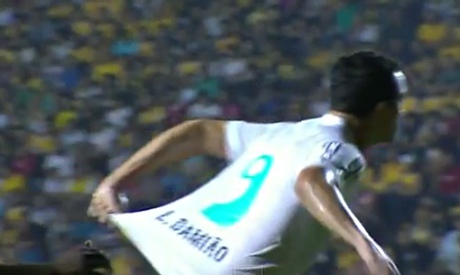When we talk about referees we usually do not think about the many decisions they have to make during a game, there are about 140 that out of 95 minutes of play correspond to more than one decision per minute.
In this regard the referee experiences the same condition as the footballer, who equally has to make many decisions, with the difference the effort is decided by the coach and the team implements it with appropriate variations due to what happens on the field. The referee performs the same performance, making decisions according to what happens, but he does not train during the week to live these moments.
“We have only physical part about the training session because we only have a physical training session. We have schedules for that. But for mental preparation we have…alone preparation…private preparation because every referee decides with himself (sic) if (they) do this type of mental preparation or not. For example, I work with many, many hours with this in the past because I think it is very important. When you prepare very well it is very important.”
Despite officials recognising psychological training as a valuable and ‘key aspect’ of their performance, it was apparent that it receives less attention than other aspects of performance. While the range of psychological skills training is broad, psychological training in referees should extend beyond the traditional ‘canon’ of psychological skills training in sport, identified as relaxation, self-talk, imagery, goal setting and concentration (Anderson, 2009). For instance, concepts couched within social psychology such as group process have been identified as beneficial to sports officials (Hancock et al., 2018). Specifically, when asked if psychological training should be mandatory for officials, Frank replied: “It should be…I hope in the future they introduce this type of person [psychologists] because I think it’s one of the secrets of a referee to have a freedom of worry.”
Naturalmente, in Italia siamo lontani anche dalla classica preparazione psicologica degli arbitri che è lasciata completamente sulle loro spalle.
A chi vuole approfondire suggerisco di leggere il seguente articolo dove sono discussi questi aspetti:
Carrington, S.C., North, J.S., Brady, A. (2022). Utilising experiential knowledge of elite match officials: Recommendations to improve practice design for football referees. International Journal of Sport Psychology, 53(3), 242-266.






